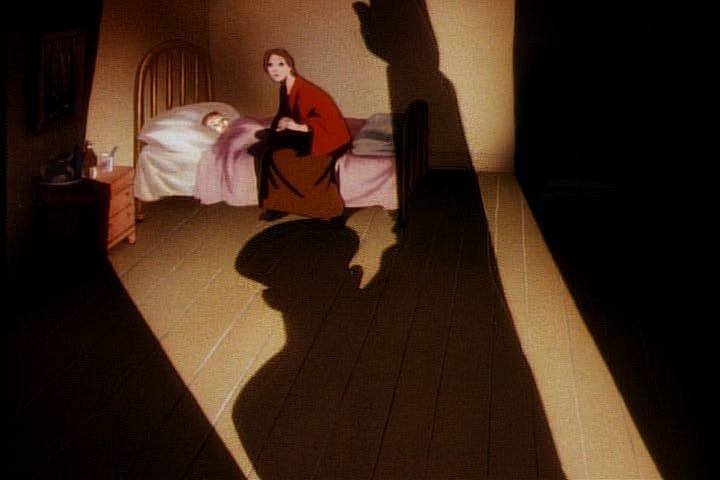WWII Propaganda animation about Hans, a German boy, who is raised to become a Nazi.
The most startling thing about this short animation that it is actually talked in German. I wonder how the decision to do this came about. Maybe to lend it more "authenticity" which seems a bit ridiculous in an animation that was pretty expressive in design.
The marching scene at the end is quite iconographic and might be traced back to WWI pictures. (Fields of crosses, etc).
An interesting watch, as it lacks humor, but also delivers the strange message: "Not all Nazis are bad, the Germans can't help it". It's quite clear that the audience is supposed to partake in Hans' fate of being bent by the propaganda around him, until he becomes the "killing machine" he was always intended to be. The film falls short, as it tries to convincingly explain the rise of the fascists in large numbers from the world view that everybody is born equal. But it is exactly this shortcoming that makes this film much more interesting than other, more straightforward, propaganda, in my opinion.
The most startling thing about this short animation that it is actually talked in German. I wonder how the decision to do this came about. Maybe to lend it more "authenticity" which seems a bit ridiculous in an animation that was pretty expressive in design.
The marching scene at the end is quite iconographic and might be traced back to WWI pictures. (Fields of crosses, etc).
An interesting watch, as it lacks humor, but also delivers the strange message: "Not all Nazis are bad, the Germans can't help it". It's quite clear that the audience is supposed to partake in Hans' fate of being bent by the propaganda around him, until he becomes the "killing machine" he was always intended to be. The film falls short, as it tries to convincingly explain the rise of the fascists in large numbers from the world view that everybody is born equal. But it is exactly this shortcoming that makes this film much more interesting than other, more straightforward, propaganda, in my opinion.

Kommentare